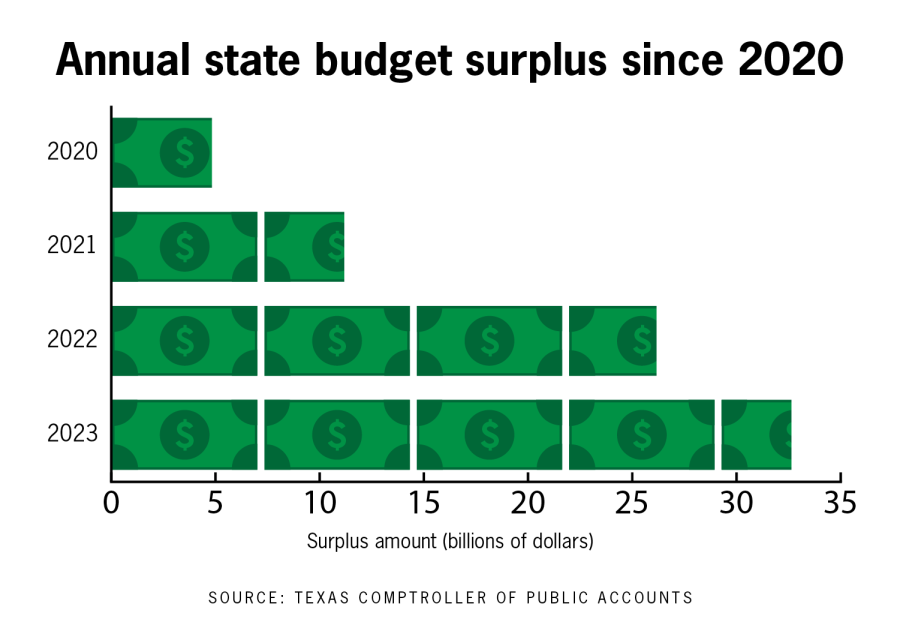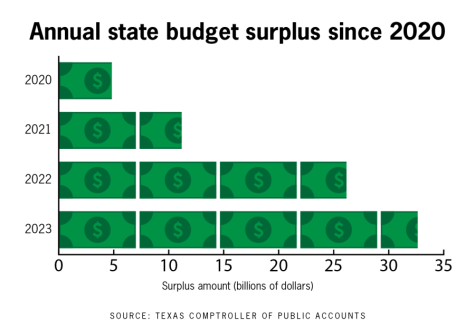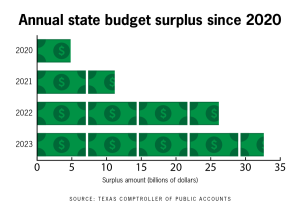House Appropriations Committee approves 2024-25 state budget bill draft — here’s what’s in it
March 23, 2023
The House Appropriations Committee approved the official draft 2024-25 Texas state budget Thursday, using an unprecedented $302.7 billion budget to fund property taxes, wage increases and border operations.
The House will vote on the proposed budget plan in the coming weeks.
Glenn Hegar, Texas comptroller of public accounts, estimated a two-year revenue of $188.2 billion for the 2024-25 fiscal period. Hegar said the upcoming budget year will see a 26% increase in funds from this budget year due to energy prices and price inflation.
“The revenue increases that we’ve seen have been, in many ways, unprecedented, and we cannot reasonably expect a repeat,” Hegar said in his Biennial Revenue Estimate. “We are unlikely to have an opportunity like this again. This budgeting session is truly a once-in-a-lifetime session.”
Based on factors like the revenue estimate for the upcoming fiscal period and the budget surplus from the previous two years, during each legislative session, the state House and Senate develop a budget proposal. The proposed budget must account for two years of funding because the legislature only comes to session every other year.
The state has a budget surplus from the 2022-23 budget of approximately $33 billion, an increase from last year’s budget surplus of $26.2 billion. Other than $10 billion already set aside for the state’s rainy day fund and highway fund, lawmakers can spend the remainder of the surplus however they choose within state law.
This year’s proposed House budget includes funding for increased teacher and state worker wages, mental health services and property tax cuts.
The proposed budget includes funding for UT-Austin, such as an extra $2 million per year in the budget provided through the National Research University Fund — funding meant to aid research productivity and faculty support at Texas research universities. Additionally, the proposal allows an additional $15 million each year for faculty salaries.
The Civitas Institute, a think tank recently formed at the University, would receive $3 million in yearly state funding based on the House’s proposal.
In addition to the bill’s designated funds, State Rep. Carrie Isaac proposed a rider — an additional ordinance tacked on to an existing bill — that will prevent state funds from being spent on diversity, equity and inclusion programs and practices at the university level, which would include DEI-focused personnel, activities and training.





